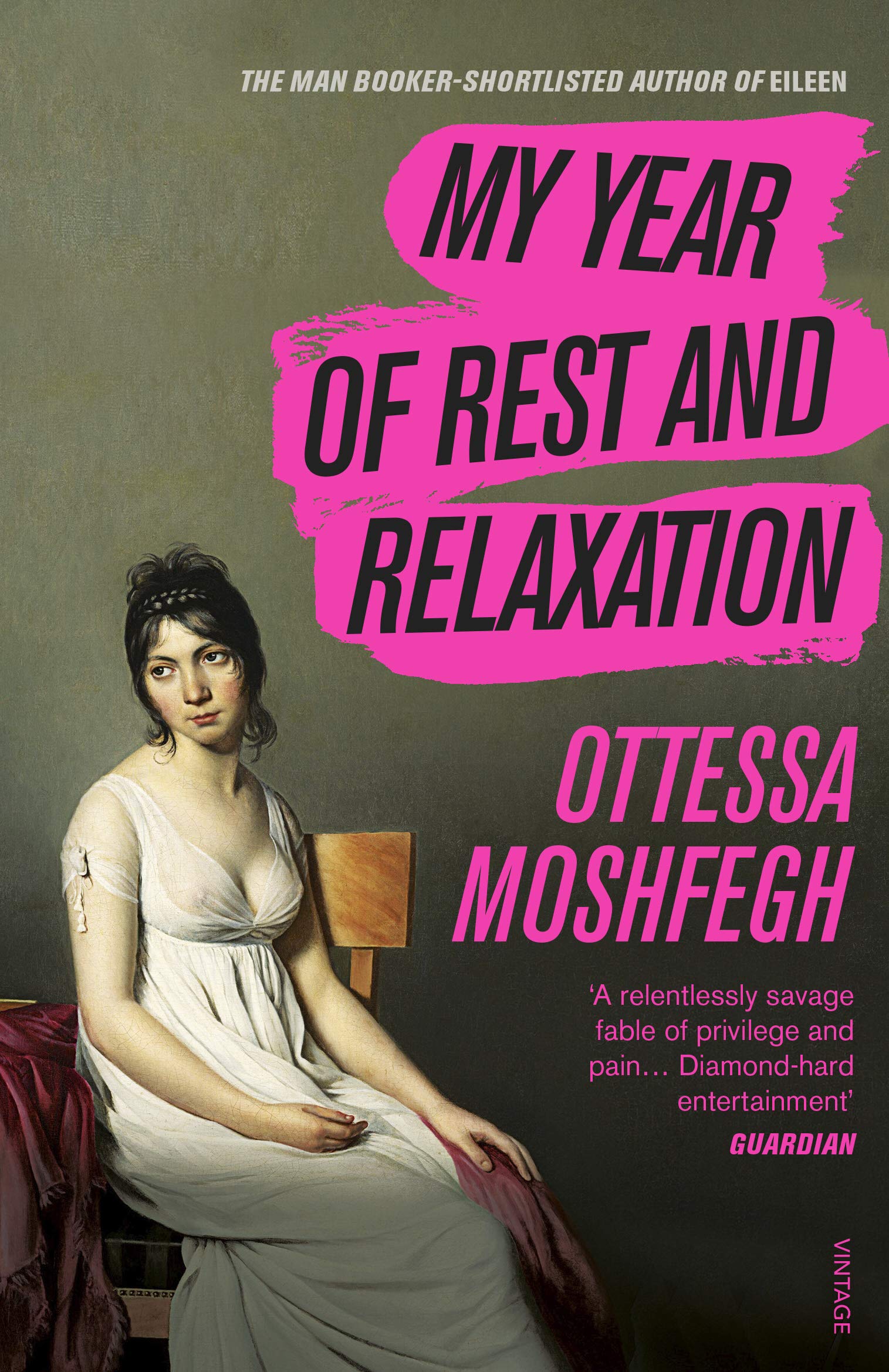
Written by Aslan Gossett
Edited by Josh Strange
(Mostly Spoiler Free)
Ottessa Moshfegh’s second book, My Year of Rest and Relaxation, explores its 300-some pages with postmodern monologues and an inverse metamorphosis story for the ages. Set in New York between 2000 and 2001, the book heralds possibly the most hate-able protagonist ever written (who we’ll refer to as the sleeper), although not to the book’s detriment! The sleeper’s attempt to hibernate for an entire year using prescription sedatives produces a surprisingly insightful commentary on self-deception, depression, and addiction out of the sleeper’s catastrophic decision making you can’t help but love.
The sleeper, from somewhere in the future, describes how she lived alone in her expensive New York apartment after her father died of cancer and her mother overdosed, and she genuinely believed that everything she goes on to do was for her benefit. Within the first few chapters, she establishes herself as gruesomely judgmental, socially detached, and horrifically elitist, while, somehow, remaining fair when making critiques of herself…right? One of the hallmarks of the book’s glacial pace is the reader’s constant, gradual reassessment of whether the sleeper is trying to convince someone of something; the sleeper hates pity, but she seems to elicit pity; the sleeper says she doesn’t want to be understood, and yet she painstakingly explains every facet her life and history to the point of redundancy. She even forgets what she has told the reader on a few occasions and repeats herself many times throughout the book. This is especially true as she progressively increases the payload of her drug cocktail, time and again nudging her the narrative tone towards an uncanny, grotesque arrogance.
Even though the sleeper knows she has never resolved her trauma, this is not to excuse how she verbally abuses everyone else she sees as vain and beneath her (read: everyone)—it is for the reader to judge her incessant appraisals of others and herself. The reader is the sleeper’s true therapist that is never asked for insight—the reader merely witnesses a slow, medicated death. She is not always consistent, and her ruminations tonally shift sentence to sentence. Moreover, her nihilism and inability to fully rationalize everything that has happened to her invades the novel’s every waking moment, oppressively beating down any expectation for a breath of optimism. There are definitely high points, or moments of mild breakthrough, but they are fleeting. She doesn’t want any sympathy and she doesn’t want to be acknowledged (at least, right up until she flags another cry for help while chastising anyone who dares answer her call). She just wants to rest…whatever that means.
Of course, as one would imagine with constantly taking heroic doses of Zoloft and Xanax, her apartment quickly descends into squalor, she loses weight, and (surprise!) feels worse. The sleeper escapes the blackened clutter of her living room by reminiscing on how she used to live and besmirching people she used to know over slices of pineapple pizza. Genuinely, her story is equal parts privileged and tragic; her parents were wealthy but did not know how to love her, and she had everything she wanted if it contributed to her image as a perfect prep-school icon, destined to become valedictorian. Herein lies one of Moshfegh’s greatest strengths: as a reader, you fully understand the nuance being presented—things are never black and white—but you are never disillusioned by the crippling brutality of the sleeper’s vanity. She is both reliable and unreliable, depending on her mood, but it is never a chore to figure out how to interpret her cryptic messages. She is surprisingly articulate while never relinquishing her wickedly cruel perception—you’ll love every minute of her judgmental musings.
In the attempt to remain mostly spoiler free, I’ll just leave off with this: one’s body will only put up with sleep-induced shenanigans for so long, and, going into the books second act, there is a refreshing meditation on what it looks like for one’s body to fight back against the person that inhabits it.
Whether or not she knows there is nothing at the end of her pill-filled rainbow, the sleeper ardently doesn’t care (or so she says). She declares exactly what’s going to happen and everyone else might as well not exist as she enacts her will. It’s a grimly enjoyable ride, full of gallows-humor and lethal irony…so long as you have the stomach to survive the sleeper’s nauseating, dogmatic fascination with becoming nothing.



